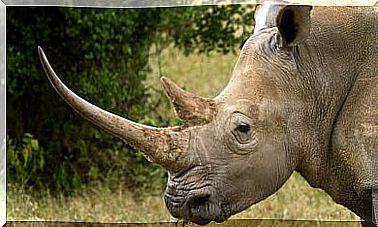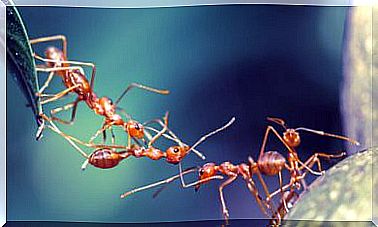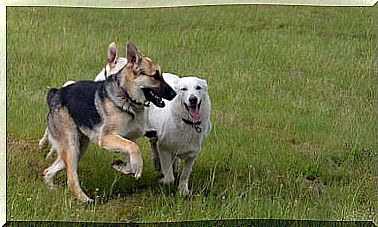Donkey: Characteristics, Behavior And Habitat
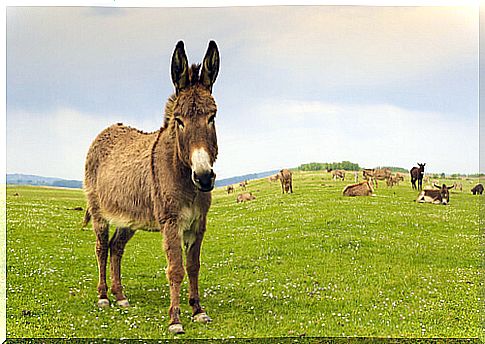
Donkeys are found in almost all parts of the world, and they are used especially as draft or pack animals. However, under the skin of these quadrupeds close to the adored horses, some extraordinarily sweet and intelligent animals hide. Today we tell you all about the donkey.
Physical characteristics
Donkeys belong to the equine family, that is, they are closely related to horses, but also to rhinos.
However, they are smaller than horses. An adult donkey usually measures between 90 and 140 cm to the withers, although there are specific taller breeds. For example, the Catalan donkey, which exceeds 160 cm at the cross. They weigh around 250 kg and live between 15 and 20 years, although specimens that have reached their 40th birthday have been documented.
Donkey colors vary between all shades of gray, from absolute white to black. There are also variations of all brown colors. There are totally white or black breeds, but the usual thing is that they have a variation and mixture of all these tones.
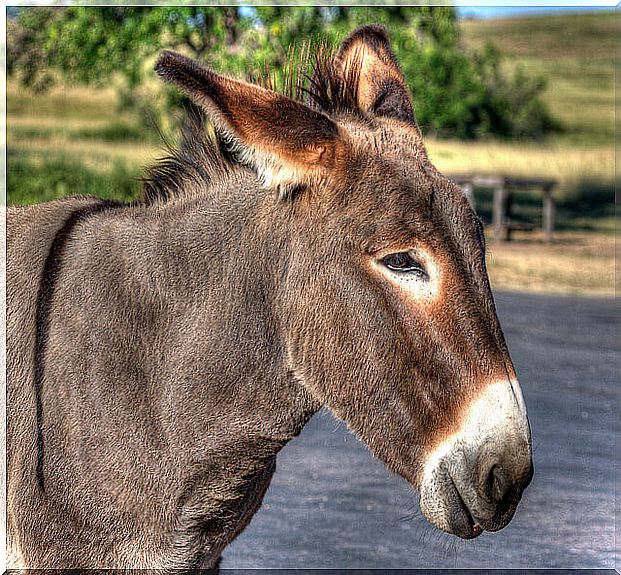
It has a short, spiky mane and very large ears in proportion to its body. They can move their ears in many directions and use them to cool themselves.
Ethological characteristics
The current donkey is a descendant of the wild asses that inhabited Africa. It was domesticated about 6,000 years ago, when it began to be used as a draft animal. They are tough and resistant animals, capable of surviving in hot environments with little water, such as the desert. They have a hard time living in cold places.
Donkeys are herbivorous animals and they like a wider range of foods than other herbivores. However, they prefer grass and hay to woody shrubs. They are very fond of vegetables and need less food, in comparison, than other animals of the same size.
In addition, they make good use of the water from all the plants they eat, so they drink little and can afford not to drink from water sources that seem unclean to them.
Donkey behavior
Donkeys are extremely docile and accommodating. Almost all of them today are used as draft or pack animals, and they do their work diligently, despite the fact that they often do so under harsh conditions or without the possibility of rest. They are tough animals that endure living and working conditions that would be impossible for others.
The prejudices around the donkey have turned their name into an insult, but in reality they are very intelligent and clever animals. Their movements are slow and they never seem to be in a hurry, but when given the opportunity they prove to be very clever and capable of solving complex problems.
In addition, they have a great memory that allows them to remember places and routes that they followed long ago.
It is difficult to make a donkey angry, but if it is upset, it can defend itself by kicking its back legs. There are cases in which they have not been able to attack with their back legs and have defended themselves by biting. But these cases are the exception, since they are very docile animals and not aggressive or irritable.
They also have a reputation for being stubborn. And it is true that when they do not want to do something, it is very difficult to convince them. But this is more due to the fact that they are cautious animals and have perceived a certain danger in what they are ordered.
Habitat
There are donkeys all over the world. The first were domesticated in North Africa, but their extraordinary character and strength took them around the entire planet, especially to hot countries.
We can find specimens in southern and western Europe, in almost all of Asia and scattered throughout Africa. There are also many in South America. Half of those in existence today live in Asia, divided between China, Afghanistan and India. In America, the countries with the most donkeys are Mexico and Colombia. In Spain, they are located especially in Andalusia, but they are disappearing very quickly.
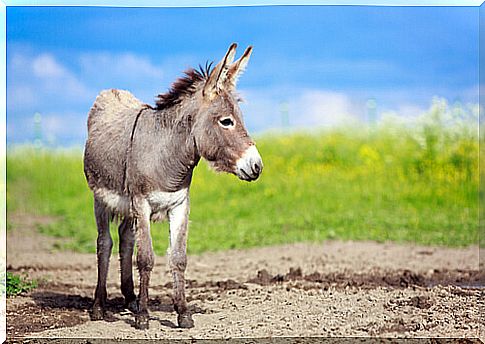
It is said that there are no longer any wild asses. Those living in freedom today are descendants of abandoned or escaped domestic donkeys, which have become accustomed to living without humans.
Save the species
In Europe, and especially in Spain, the donkey population is declining to near extinction. The four own Spanish races are in danger. To this is added that many are victims of abuse or abandonment, as reported by the news every year after some of the most important pilgrimages. For this reason, shelters or sanctuaries dedicated solely to them are emerging. These organizations rescue, collect and care for donkeys that have had a bad life and try to find a better one for them.
Donkeys are exceptional, resistant and highly intelligent animals. They have spread all over the world thanks to their strength and docility. Thanks to them, popular culture is full of sayings, fables and tales.


